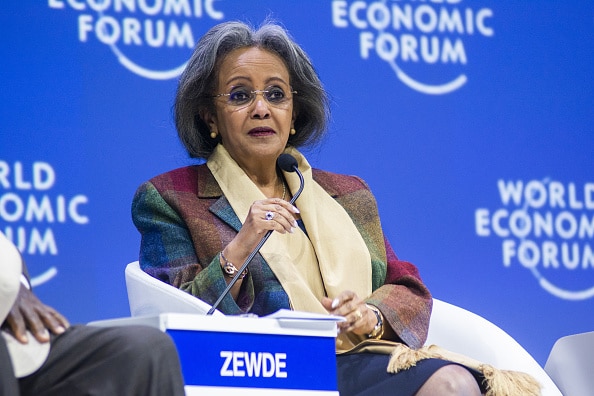Sahle-Work Zewde, Ethiopia’s first female president and the only serving female head of state in Africa, tells FORBES AFRICA why more leaders should use soft power to achieve shared growth.
Sahle-Work Zewde has her name etched in political history. A veteran public official having served as an ambassador to Senegal, Djibouti, and France between 1989 and 2006, before her presidency, Zewde was Special Representative to the African Union and Head of the United Nations Office to the African Union. In an email interview, Zwede, who was also on FORBES AFRICA’s list of ‘Africa’s 50 Most Powerful Women’ for its March issue, dwells on why the ‘Africa we want’ will only become a reality with the positive and significant transformation of women’s lives:
In your position, how are you moving to achieve more gender proportionality in Ethiopian politics?
I see my being in this position as both an opportunity and responsibility. I know that it is political will that has opened the way for me and many other women to assume positions of power and influence in the Presidency and the ministerial cabinet in Ethiopia. This stride is a major step forward for Ethiopia as a nation and also for the continent. However, things can regress and go back to how they were unless we take strategic and intentional action to build on the momentum. For me, the way forward is using my platform to empower and embolden the women coming after me. This can occur in two ways. The first is working on empowering the women who are in the workforce and especially in positions of leadership to reach their full potential and engage in activities that provide opportunities for the next generation of women leaders. The second is helping female students at both the university and high school levels to ensure that we have a steady stream of competent, educated and confident women ready to take over. As women in power, we have a responsibility to all the women that will come after us to ensure that their trajectory is easier than ours.
How must Africa change in this regard?
Loading...
Although more progress has been achieved in terms of delivering on our promise to provide support towards women’s education, health services, access to finance and political participation in a growing number of African countries, much more needs to be done. As a continent, we must go beyond the rhetoric and provide tangible solutions for African women in all sectors. The ‘Africa we want’ will only become a reality with the positive and significant transformation of women’s lives and the extent of their participation in all walks of life.
What do the words ‘power’ and ‘soft power’ mean to you?
There is a clear distinction between ‘power’ and ‘soft power’. While the first uses any means to achieve a goal, the latter relies on influence through communication, understanding and healthy discourse. Soft power does not resort to violence or coercive methods to achieve the results sought. Serving as a diplomat for a quarter century and at the United Nations for over a decade, I became very knowledgeable of the utility of soft power to reach consensus and effectuate change.
For me, the idea of soft power is what we need to promote as a continent. For decades, our continent has been ravaged by civil war, ethnic conflict and infighting.
However, Africa is now enjoying more economic growth than it has ever had. What we need now is more leaders to exercise soft power, finding what unites us to achieve a vision of shared growth. Traditional governance sees the government as the sole owner and executer of international relations. However, with our increasingly globalized world, it’s the people-to-people connections that make a true and lasting impact and bond. Leaders of today have to detach from traditional views and adopt the more global perspective the times require.
– Interviewed by Renuka Methil
Loading...








